- News
- Reviews
- Bikes
- Accessories
- Accessories - misc
- Computer mounts
- Bags
- Bar ends
- Bike bags & cases
- Bottle cages
- Bottles
- Cameras
- Car racks
- Child seats
- Computers
- Glasses
- GPS units
- Helmets
- Lights - front
- Lights - rear
- Lights - sets
- Locks
- Mirrors
- Mudguards
- Racks
- Pumps & CO2 inflators
- Puncture kits
- Reflectives
- Smart watches
- Stands and racks
- Trailers
- Clothing
- Components
- Bar tape & grips
- Bottom brackets
- Brake & gear cables
- Brake & STI levers
- Brake pads & spares
- Brakes
- Cassettes & freewheels
- Chains
- Chainsets & chainrings
- Derailleurs - front
- Derailleurs - rear
- Forks
- Gear levers & shifters
- Groupsets
- Handlebars & extensions
- Headsets
- Hubs
- Inner tubes
- Pedals
- Quick releases & skewers
- Saddles
- Seatposts
- Stems
- Wheels
- Tyres
- Health, fitness and nutrition
- Tools and workshop
- Miscellaneous
- Cross country mountain bikes
- Tubeless valves
- Buyers Guides
- Features
- Forum
- Recommends
- Podcast
news
Strangest anti-cycling campaigner ever? Bike path expansion plans opposed… by 19th-century landowner and MP (kind of); “They wouldn’t have stopped at the Tour de France”: Cyclists refuse to race after 50 riders crash in heavy rain + more on the live blog
SUMMARY
 Sir Richard Wallace and Lagan towpath, Lisburn
Sir Richard Wallace and Lagan towpath, Lisburn03 February 2025, 09:09

The Ghost of Anti-Cycling Past: Bike path expansion plans opposed… by 19th-century landowner and MP (kind of), as objector raises concerns about path’s “true ownership” and claims application was issued “recklessly”
Here on the live blog, we’ve compiled a healthy (or unhealthy, as the case may be) list of people whose names have been attached to anti-cycling campaigns over the years, from MPs and councillors to disgruntled local residents, loophole-seeking lawyers, radio presenters, and… err, Sir David Attenborough.
But even this one is new to us.
Because in Lisburn (the Northern Irish city which has become a classic Pointless answer), plans to expand a cycle path have been opposed – due to concerns over whether the land in question is owned by the council and Northern Ireland Housing Executive… or a Victorian aristocrat and MP.
An application to expand the Lagan Towpath cycle route is set to be considered today by Lisburn and Castlereagh City Council and has been recommended for approval, Belfast Live reports.
The plans for the path, part of the National Cycling Route and the scene of the 2009 Ulster cyclocross championships, raced by your resident live blogger, involve “substantially improving” the riverside cycling and walking zone.
However, one objector has raised concerns over the land’s ownership deeds, arguing that there is a “fundamental flaw” in the “root of title” in the “matter of the estate of Sir Richard Wallace Baronet MP”.
Sir Richard Wallace, 1st Baronet was the MP for Lisburn in the 1870s and his vast estate in the area, the centre of Northern Ireland’s flax and linen industry, extended to over 50,000 acres, making him one of the richest men in the UK at the time. He also owned one of the greatest private art collections in the world, which is still available to view at the Wallace Collection museum in Hertford House in London’s Manchester Square.
Not much is known about his thoughts on cycling, if we’re honest. Though Lisburn’s Wallace Park, bequeathed to the city’s people by Sir Richard, did feature an outdoor velodrome, opened in 1953, for over fifty years before it fell into disrepair, so there’s that.
Move over Attenborough...
In any case, Mr Ian Power isn’t convinced the Victorian art collector would have been too fond of the council using his land for active travel purposes.
“I have no interest in the designated land or what has been proposed,” he said in his objection to the scheme. “I would take the view that LCCC should refuse to entertain this planning application further until the applicant had identified the correct owner and served the correct certificate on the owner.
“The planning application certificate [of ownership] is demonstrably wrong having been issued recklessly by the applicant.”
However, according to the Planning Portal application, the parcel of land is owned by LCCC and the NI Housing Executive, who are both identified as “land owners”.
Meanwhile, the Lagan Valley Regional Park website states that the Cycling and Inland Waterways Unit of the Department for Infrastructure (DfI) owns and maintains the ‘Lagan Navigation’, including the towpath and associated water recreational facilities.
“Full planning permission is sought for the widening of the Lagan Towpath, Lisburn, where the River Lagan runs adjacent to the Laganbank Road. Works will include construction of a new concrete retaining wall. The length affected area is approximately 520 metres,” the LCCC planning committee report states.
“There have been four letters of representation submitted by one objector. The issues raised in these submissions relate to procedural matters linked to land ownership queries.
“It is considered the appropriate checks of the issues raised have been undertaken within the appropriate parameters of the planning application process.”
Take that, rich guy who died 135 years ago…
03 February 2025, 15:25
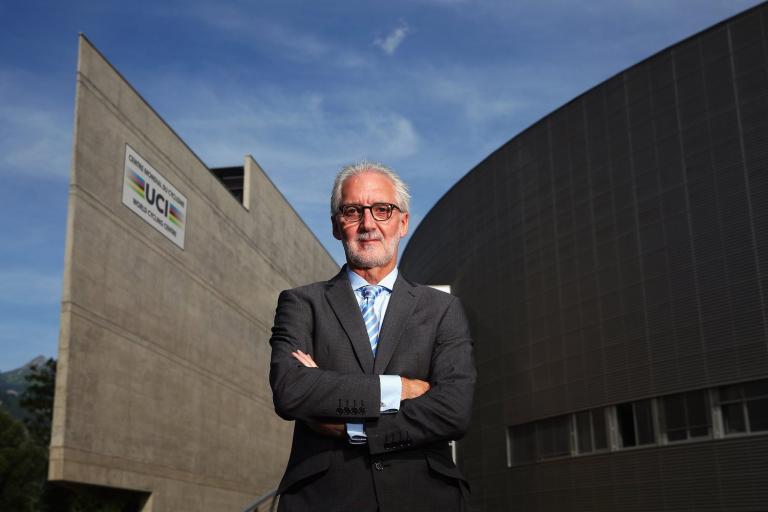
“Can you imagine any retailer of any other product getting away with that?” TNT means… No cycling: Brian Cookson uses baked beans analogy to hit out at “outrageous and incompetent” Discovery for “trying to kill cycling for British customers”
Over the past week or so, discussion in the cycling world has been dominated by the news that watching bike races in the UK and Ireland is about to get a whole lot more expensive, thanks to Warner Bros. Discovery’s decision to close down Eurosport.
That means the cycling coverage we’ve watched on Eurosport for three decades is being moved at the end of this month to TNT Sports, where customers will now have to pay the princely sum of £30.99 a month to watch their favourite sport (along with a plethora of other sports they may not be that interested in).
And now it’s the turn of former UCI and British Cycling president Brian Cookson to weigh in on cycling’s controversial transfer to TNT – by comparing it to buying baked beans at the shop.
Yes, that’s what a few years running pro cycling will do to you.
In all seriousness, Cookson took to his LinkedIn page when the news broke last week to criticise the “outrageous and incompetent mishandling of this by Eurosport/Discovery/Warner Bros.”, asking: “Are you trying to kill cycling for your British customers?”
And over the weekend, he then shared our story on the fans threatening to report Warner Bros. Discovery to the UK market regulator for “abuse of monopoly” and “price gouging” (thanks Brian), and write: “So maybe this is not going to be quite so easy for WBD.”
> How to watch cycling for less now it's moving to £30.99-a-month TNT Sports
In another post, Cookson – obviously just back from his weekly shop – said: “Here’s an alternative way to look at this. I like a particular brand of baked beans, which I can buy at a number of different supermarkets at a reasonable price. I don’t like any other beans or any other sort of canned vegetables.
“Now I find that in future I am only going to be able to buy these beans from one particular supermarket, and I will have to buy several other brands of beans and canned vegetables that I don’t like and don’t ever eat.
“Can you imagine any retailer of any other product getting away with that? Can you imagine that company and people in that industry telling the people who objected that they just didn’t understand that industry?
“I think the many people who are objecting to this move by WBD to scrap Eurosport in the UK and Ireland, to package its coverage of sports like cycling in with sports we don’t wish to watch, whilst hiking up the price for this combination by a ridiculous amount, well, I think we understand it very well indeed. And we don’t like it.”
Amen. Though is anybody else hungry after reading that?
03 February 2025, 16:26
“Stay with us to discover what the future holds,” Italian cycling clothing brand La Passione says… while announcing the company shut down at the end of 2024
03 February 2025, 15:58
“He had a work ethic rare in young people these days. A terrible loss”: Readers pay tribute to national junior 25-mile time trial champion Aidan Worden, killed on Saturday in collision with driver
Our readers have been paying tribute to 18-year-old Aidan Worden, the British junior 25-mile time trial champion, who was tragically killed in a collision with a car driver on Saturday, while he was out on a training ride with friends in Lancashire.
“I knew Aidan from Paul Hewitt Cycles,” said road.cc reader No Reply, referring to Aidan’s job at the Leyland-based bike shop. “When he first started there, he was very quiet, but over time became more chatty.
“I know Paul thought a lot of him, he had a work ethic rare in young people these days. A terrible loss.”
“Very sad news this, I rode with this lad once on a new group ride I was trying out last year,” wrote ACyclingGuitarist.
“He was very welcoming, and I could tell he was a kind soul. Thoughts go out to his family and all of his training mates and those who knew him through the group rides.”
And lesterama said: “Another tragic waste.”
More tributes can be found in our original story.
03 February 2025, 14:37
“You need a Saudi bank balance to watch cycling in the UK now”
So, it looks like Eurosport – soon to be banished from UK screens to make way for the TNT/Discovery empire – also posted some photos of AlUla Tour winner Tom Pidcock gamely performing his all-important PR duties for the Saudi race, while encouraging their followers to “caption this”.
And it’s fair to say it went about as well as could be expected, given the circumstances surrounding both the AlUla Tour and the future of cycling coverage in the UK.
Here’s a selection of some of the, ahem, best captions:
“Make the most of it, because you pleb cycling viewers aren’t gonna see this beyond February.”
“You need a Saudi bank balance to watch cycling in the UK now.”
“Did you enjoy watching the last British stage race winner before cycling vanishes behind a £31 monthly paywall in the UK and Ireland?”
“Enjoy it while you can, ya’ll getting f***ed by Warner come the end of the month... RIP Eurosport, we loved you.”
> How to watch cycling for less now it's moving to £30.99-a-month TNT Sports
“Sportswashing.”
“Pandering.”
“Seen more fans watching my boys’ U12 football games.”
“Steve Miller Band said it best: ‘Go on take the money and run’.”
I’m sure Eurosport’s social media team is delighted with how that turned out…
03 February 2025, 14:59
How do you improve a 10/10 bike? A new variant Reynolds 853 steel tubeset, clearance for 39mm tyres plus, more strength and weight, at least according to its designer
03 February 2025, 10:57

“They wouldn’t have stopped at the Tour de France”: CPA defends cyclists’ refusal to race after “chaotic” start in heavy rain saw 50 riders crash and team cars slip off road during Mallorca Challenge – as organisers fume with sign-in protest
February may have only just started, the winter bikes are still out in force, and the cyclocross obsession hasn’t worn off just yet – but we already have our first ‘extreme weather protocol’ scandal of the 2025 road season.
I swear they’re getting earlier every year…
After potholes at the AlUla Tour last week prompted a pre-finish detour, this season’s inaugural showdown between riders and race organisers over safety took place on Saturday, during the penultimate leg of the five-day ‘not a stage race’ Mallorca Challenge.
Just half an hour and 23km into the hilly Trofeo Andratx-Pollença, which was set to climb the Coll de Puig Major, a mainstay of cycling holidays on the Spanish island, the peloton pulled the pin and decided to neutralise the race due to the wet and treacherous conditions.
According to reports, 50 riders crashed in ten separate spills, with some – including Jordi López of Euskaltel-Euskadi, who injured his shoulder – being taken to hospital, while a number of team car drivers said they were also slipping off the slick Mallorcan roads.
Representatives of the riders’ union, the CPA, then informed the race officials that they would not continue, before heading back to their hotels – a decision that was heavily criticised by the organisers, who questioned why the riders chose to pack up before they could arrange a potentially safer alternative route.
“We respect their decision, but we do not agree with it, and we do not like it at all,” race director Manolo Hernández said on Saturday.
“If this were the Tour de France or Vuelta a España, they would not have stopped. Organising these events takes a lot of effort.
“I’m not saying a stage should never be suspended because the safety of the riders comes first, but many factors need to be considered before making such a decision. If race organisers cannot have a say, perhaps we should stop organising cycling races altogether and find another job.”
However, on Sunday morning – ahead of the final race of the traditional season-opening event in Palma – tensions between the organisers and teams continued to run high, as Movistar DS José Joaquín Rojas claimed that no one from the race organisation was present when the riders stopped racing to discuss any possible alternatives, a claim denied by the Mallorca Challenge team.
And before yesterday’s race, won with a stunning late attack by Portugal’s Olympic champion Iúri Leitão, the organisers got their own back by pulling their announcer from the morning sign-in festivities, leaving the riders alone to wave to the fans without the traditional pomp and circumstance. Very mature stuff.
Meanwhile, the CPA’s president Adam Hansen, in his usual style, addressed the issue in a lengthy social media post, defending the rider and arguing that the decision to stop the race was the “right decision to protect their physical integrity and their lives”.
“The start of today’s race was chaotic,” Hansen said on Saturday night. “The road was completely slippery due to the rain, leading to numerous crashes. All medical services were occupied assisting multiple riders, with some even being evacuated to the hospital.
“As of 2025, with the changes to the implementation of the ‘Protocol for Discussions Regarding Extreme Weather Conditions and Rider Safety During Events’, specific actions are outlined for cases where no decision has been made before the start of the race, but safety conditions require action during the race.
“Under UCI regulations, the CPA appoints three riders to represent all riders in such situations. Today, after the start of the race, heavy rain created hazardous road conditions, resulting in more than ten crashes across multiple areas, involving over 50 riders.
“Given that the slippery roads continued to pose a significant risk, the riders realised that the situation would persist unless an alternative solution was implemented. The three designated riders, representing the entire peloton, approached the President of the Commissaires’ Panel to inform them that the race could not safely continue.
“They emphasised that if the race proceeded, crashes would continue, while medical services were already fully engaged with injured riders and hospital transfers.”
He continued: “According to the 2025 updates to the Extreme Weather Protocol (EWP), the President of the Commissaires’ Panel should have neutralised the race (in this case, stopped it to prevent further crashes) and consulted all stakeholders.
“Unfortunately, this did not happen. The riders received no feedback, nor was any alternative plan communicated by the organisers, the commissaires, or the riders’ team directors. At this point, the riders made the decision to protect their physical integrity.
“We also believe that a solution could have been found. Organisers always have a Plan B in case of bad weather affecting the race route. For example, the race could have been neutralised until a safer point and restarted from there.
“The riders made the right decision to protect their physical integrity and their lives. While we acknowledge that a decision could have been made earlier, the next step was not taken by the President of the Commissaires’ Panel (PCP). This should not have been a unilateral decision.
“There should have been discussions between all stakeholders, but unfortunately this did not happen. Riders are the last ones who would want to see a race stopped, as their job is to compete.”
03 February 2025, 13:56
When the next generation isn’t inspired by a bottle tossed from the peloton, but seems more concerned about the environmental impact of pro cycling
The times they are a-changin’…
Or maybe I’m reading too much into a confused Australian child’s reaction to an empty bottle? Maybe…
03 February 2025, 13:30
“There may be a perception that the police won’t take those reports seriously. We absolutely do, we absolutely will”
03 February 2025, 12:56
Epic battles, drama, and history in northern France: The best photos from the Liévin’s cyclocross worlds
Liévin’s tricky, technical, muddy course certainly didn’t disappoint, as the tens of thousands of cyclocross fans who flocked to this year’s world championships were treated to a race for the ages from the elite women, another barnstorming display by Zoe Bäckstedt, and the phenom Mathieu van der Poel making history… again.
Here are some of my favourite shots from a weekend chasing some mud-splattered rainbows:
The thousands of fans packed into the Liévin course strain for a glimpse of history-making Mathieu van der Poel as he runs his way through the flares and to a record-equalling seventh world cyclocross title (Alex Whitehead/SWpix.com)
After a slow start, Wout van Aert fights his way through the field to take silver, in what the Belgian described as “definitely my best cyclocross race of the winter” (Simon Wilkinson/SWpix.com)
The Welsh dragon Zoe Bäckstedt roars to her second consecutive U23 world cyclocross title (Alex Whitehead/SWpix.com)
Lucinda Brand and Fem van Empel fight it out to the finish in a battle for the ages in the elite women’s race, where Van Empel timed her late attack to perfection to secure her third straight world title (Alex Whitehead/SWpix.com)
The elite women’s podium – Van Empel, Brand, and Puck Pieterse – in order as they navigate Liévin’s technical course (Alex Whitehead/SWpix.com)
Cycling’s eternal rivalry lives on (Alex Whitehead/SWpix.com)
03 February 2025, 12:36
Looks like we’ve got an early frontrunner for the ‘Most Random Cycling Photo of the Year Award, 2025’…
Pro cycling in 2025:
‘Don’t mind the camels Tom, or the sportswashing, just keep smiling…’
I wonder what kind of watts Pidcock – fresh from two stage wins and the overall at the AlUla Tour, setting new five and ten minute power records in the process, starting life at new team Q36.5 with a bang – could produce in that not-so-aero take on a cycling kit?
At least the photographers didn’t ask him to race the camels, I suppose. Though with his cyclocross skills, I’m sure Tom would have been more than comfortable on the sand…
03 February 2025, 11:54
Add this to the ‘Celebrating Too Early’ files…
That epic, thrilling, right to the final corner battle between titans Fem van Empel and Lucinda Brand (with a smattering of Puck Pieterse) in the elite women’s race, Great Britain’s Zoe going Back to Bäckstedt in the U23s, Mathieu van der Poel blowing away the field to equal Erik De Vlaeminck’s record of seven men’s world cyclocross titles… It’s fair to say this weekend’s cyclocross world championships in Liévin had its fair share of memorable moments.
However, the junior women’s race turned out to one to forget (or perhaps just as memorable, for all the wrong reasons) for Czech rider Barbora Bukovská, who brilliantly bludgeoned her way clear of French rival Lise Revol as she approached the end of the fourth lap, sparking jubilant celebrations from the 16-year-old…
Only to find she still had another lap to go:
Bukovská’s cowbell-related confusion allowed Revol to latch back on, teeing up a scintillating final lap which saw the French rider pull clear through the last few corners, forcing Bukovská to make a small yet decisive mistake, and leave her ruining that premature celebration, as Revol raised her arms in triumph – this time when it really mattered.
Hey, but at least young Bukovská, at the age of 16, has already entered a very exclusive, and illustrious, cycling club:
> Snatching defeat from the jaws of victory — when cycling celebrations go wrong
Surely that’s better than a cyclocross world title, eh?
03 February 2025, 11:26
Horrible, tragic news from the weekend
Tributes have been paid to talented 18-year-old cyclist Aidan Worden, who was killed in a road traffic collision at the weekend while on a training ride with friends in Lancashire.
> National junior 25-mile TT champion killed in collision while training
Our thoughts are with Aidan’s family and friends at this awful time.
03 February 2025, 10:27
‘But, but, but… no one uses the bike lanes in the winter!’
9am on the first of the month. Pinch, punch. 190680 cycle journeys along Embankment since the beginning of the year during a cold dark January. Off to a flying start London 👌@cs3cs6count.bsky.social
— Bob From Accounts 🚲 (@bobfromaccounts.bsky.social) February 1, 2025 at 1:18 PM
03 February 2025, 10:05
“It’s proof that slower speeds on our roads save lives. It also means more people having the freedom to make their journey by foot or by bike, because it’s safer to do it”
After obtaining a PhD, lecturing, and hosting a history podcast at Queen’s University Belfast, Ryan joined road.cc in December 2021 and since then has kept the site’s readers and listeners informed and enthralled (well at least occasionally) on news, the live blog, and the road.cc Podcast. After boarding a wrong bus at the world championships and ruining a good pair of jeans at the cyclocross, he now serves as road.cc’s senior news writer. Before his foray into cycling journalism, he wallowed in the equally pitiless world of academia, where he wrote a book about Victorian politics and droned on about cycling and bikes to classes of bored students (while taking every chance he could get to talk about cycling in print or on the radio). He can be found riding his bike very slowly around the narrow, scenic country lanes of Co. Down.
Latest Comments
- Rendel Harris 3 hours 9 min ago
If I might make a small correction…
- Rendel Harris 4 hours 14 min ago
I agree, very little improvement indeed. From the first paragraph:...
- Rendel Harris 4 hours 20 min ago
Well yes they could but much as we would love it that would set an unworkable precedent whereby huge numbers of sports would have to go on the...
- David9694 5 hours 26 min ago
I had to look this one up: https://savingplaces.org/stories/a-tale-of-two-planners-jane-jacobs-and-...
- chrisonabike 5 hours 38 min ago
What wokery is this? I thought those tech-bros were there to save us from the "mind virus"?
- hawkinspeter 18 hours 26 min ago
Opposition to controversial East Bristol Liveable Neighbourhood ‘will filter away’ say council bosses...
- quiff 20 hours 18 min ago
I know it's not the same, but they are saying Quest will have free highlights.
- chrisonabike 21 hours 40 min ago
Yeah but if you take away any chance of getting their licence back they'll turn into some kind of amoral road-bandit! * checks court records again ...
- mdavidford 22 hours 20 min ago
As far as I can see, the only place anything like that number appears in the source story is in the video, near the end, when they're chatting...


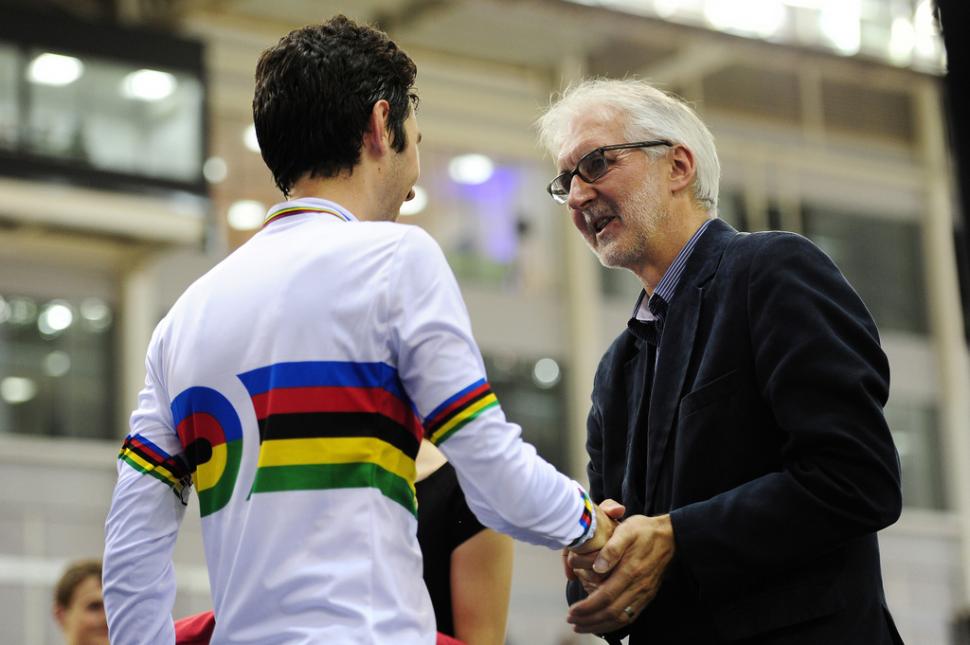
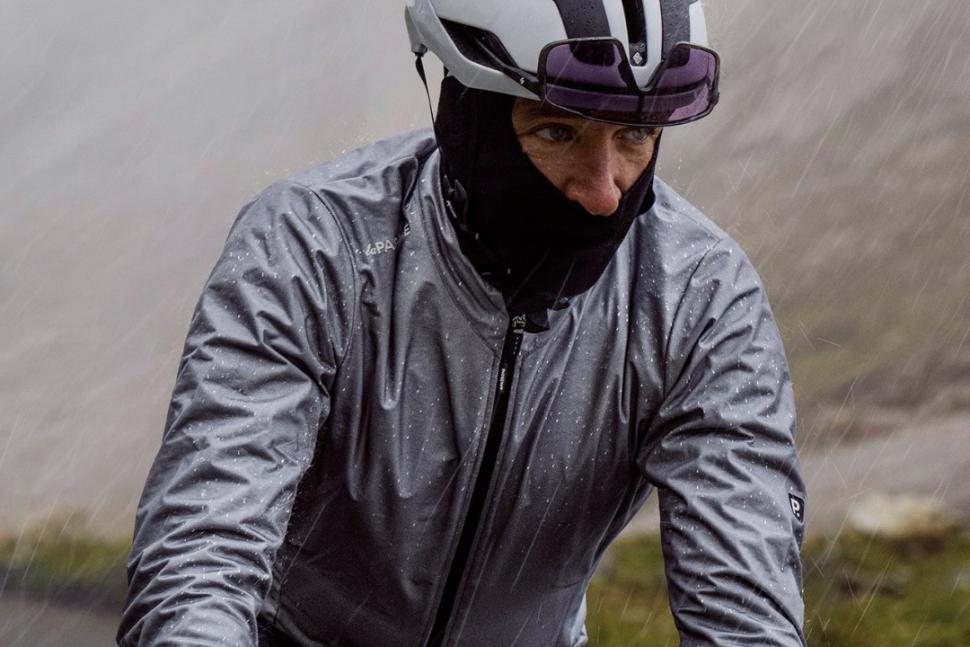










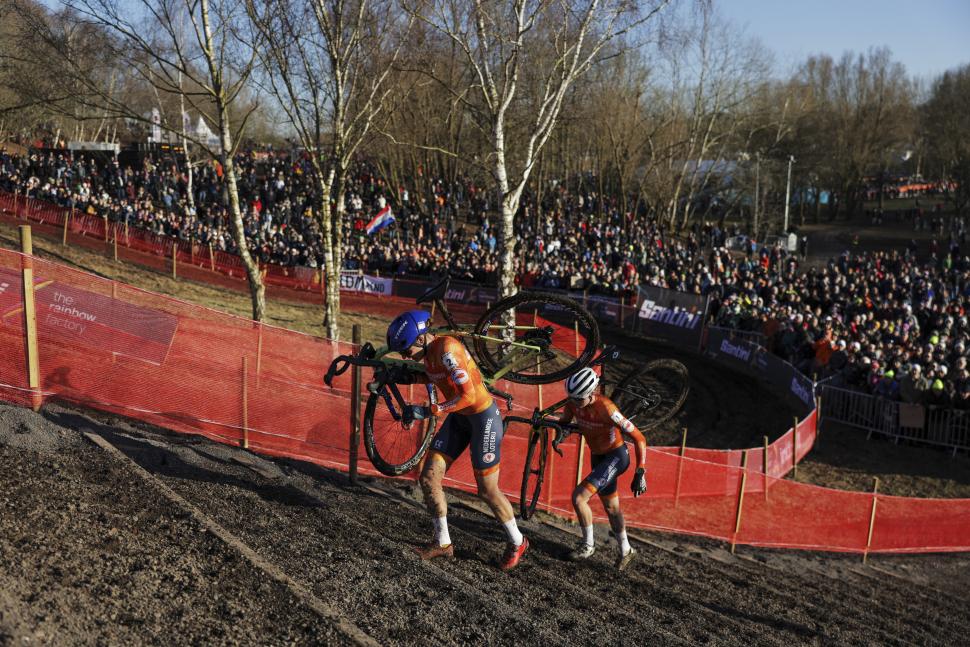


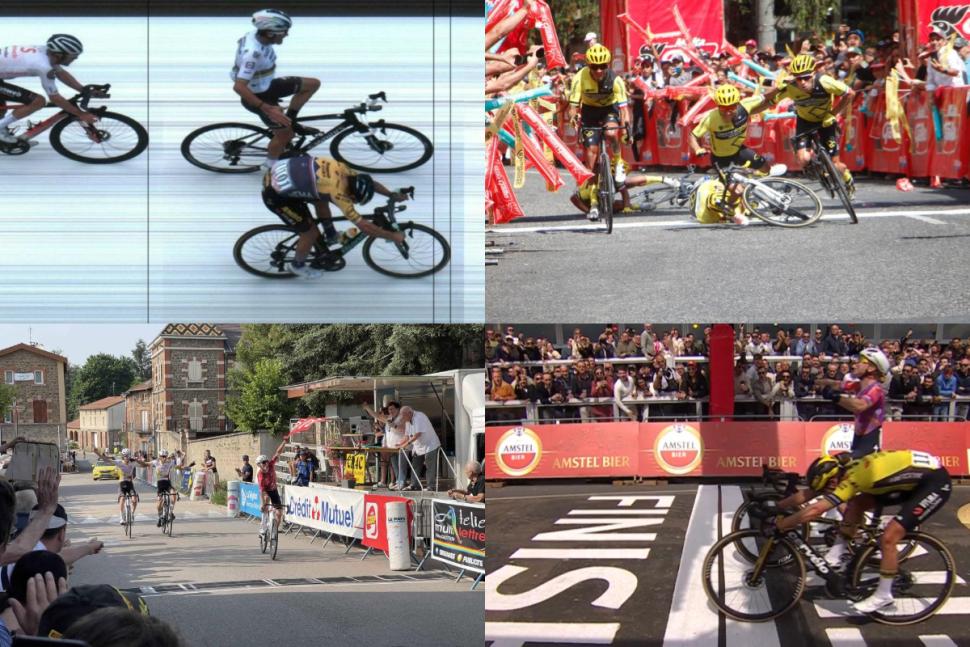

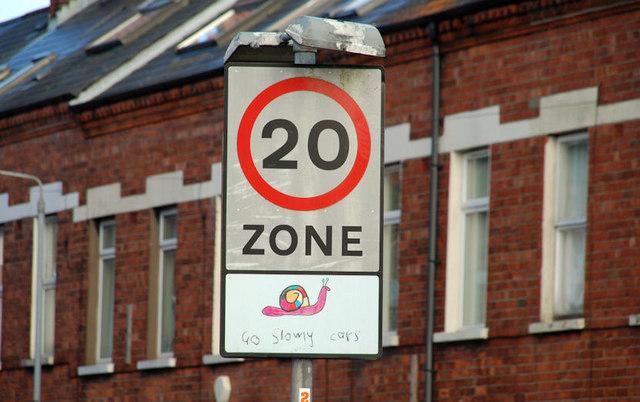
Add new comment
17 comments
"a work ethic rare in young people these"
Would those be the young people paying for a record number of pensions?
Good point.
There has been a recent uptick in the NEETs (is that what they were referencing?) but a) as the ONS points out measurement can be an issue b) seems to be a global thing c) in 2022 the UK was actually just below the OECD average for this metric.
Something something pandemic / rapid-changing and uncertain world / late stage capitalism?
I really wish the powers that be would station a few security guards in the crowd at big events like the world championships and tell them to grab anyone who sets off a powder flare immediately, extinguish the flare and throw them out; a safety hazard for the riders and a deep annoyance for the spectators both live and on TV (and for spectators with asthma or other lung issues more than an annoyance), moronically selfish.
Nothing to do with any of the articles, but ...... https://www.majorgeeks.com/news/story/random_photo_electric_bike.html
Is that funny?
No
Is that it for the cyclocross WC coverage, ripping the p*sh out of a 16yo?
A new low road.cc
You could also go on about why the men's race coverage was fixated on van Aert. My wife comes in and watches then says "I take it he is leading" and was very surprised when I said no he's a distant second.
Or talk about the junior men's race. That was brilliant.
Land ownership in England is a complete farce. Riverside walks are out of bounds and for cycling, the craziest situation is the Lambley viaduct railway path .
Families arrive there in their bikes and then have the choice of risking their lives on the steep steps or doing a 100% about turn.
Eventually someone will die, it certainiy a tragedy in waiting. The advent of ebikes makes certain of that. (Fyi. I have sent this to the council. My previous contact, I think never got any reply)
I can't have been the only one momentarily confused as to why you thought Jacob Rees-Mogg was still an MP.
Snake Pass could possibly be closed to motor vehicles due to the costs of having to keep repairing it due to landslides.
https://www.bbc.co.uk/news/articles/c5yrnz5wxgko
Sounds promising. But if it closes to motor vehicles because of the landslips, might it close to all vehicles on safety grounds?
Not likely considering the road bypassing Winnats Pass was closed for the same reason in the 70s and is now a popular walking and cycling route.
Which could be great news, but if the council are asking for money to repair it now, what happens if they hand it over to a walking/cycling route and the land slips continue like they have on the Old Mam Tor road. Great for mountain biking but not an alternative route to Winnats or Mam Nick on a less rugged bike.
While the weight of the vehicles will play a part on the ground giving way, the geology will also play a part. I am sure that the freeze and thaw that happens up there regularly will play havoc with the ground underneath.
A good alternative and easier route through. However, manouevring an ebike there is again, a bit dangerous.
Riding up Mam Tor on the Broken Road isn't really a big issue on a road bike. At the worst you may have to walk a few metres if not a competent rider. Still better than dealing with lunatics in cars.
Oldfield Lane, Altrincham, which links Oldfield Brow to Dunham Park was permanently closed to motor traffic during the pandemic.
Subsquently vegetation has encroached from both sides and mud/debris has washed off the surrounding fields.
My point is that although closing roads to motor vehicles may appear attractive the road becomes unusable unless it is regularly maintained.
There's the rub though - as Laura Laker noted recently in a Cycling UK article, we understand (mostly...) we need to maintain roads and there are processes and a budget for that. Cycle infra? Very often "nope". That's probably because lots of it was established or even built by charities!
(This effect isn't limited to cycle infra of course. Local authorities - or even national ones - can be quite happy to take credit for / proudly list stuff that was provided by charities. Because it's not "in house" though there is no "ownership" by the bigger authority so there will likely not be a budget to keep it going and it definitely won't be seen as their responsibility to fix if it breaks).